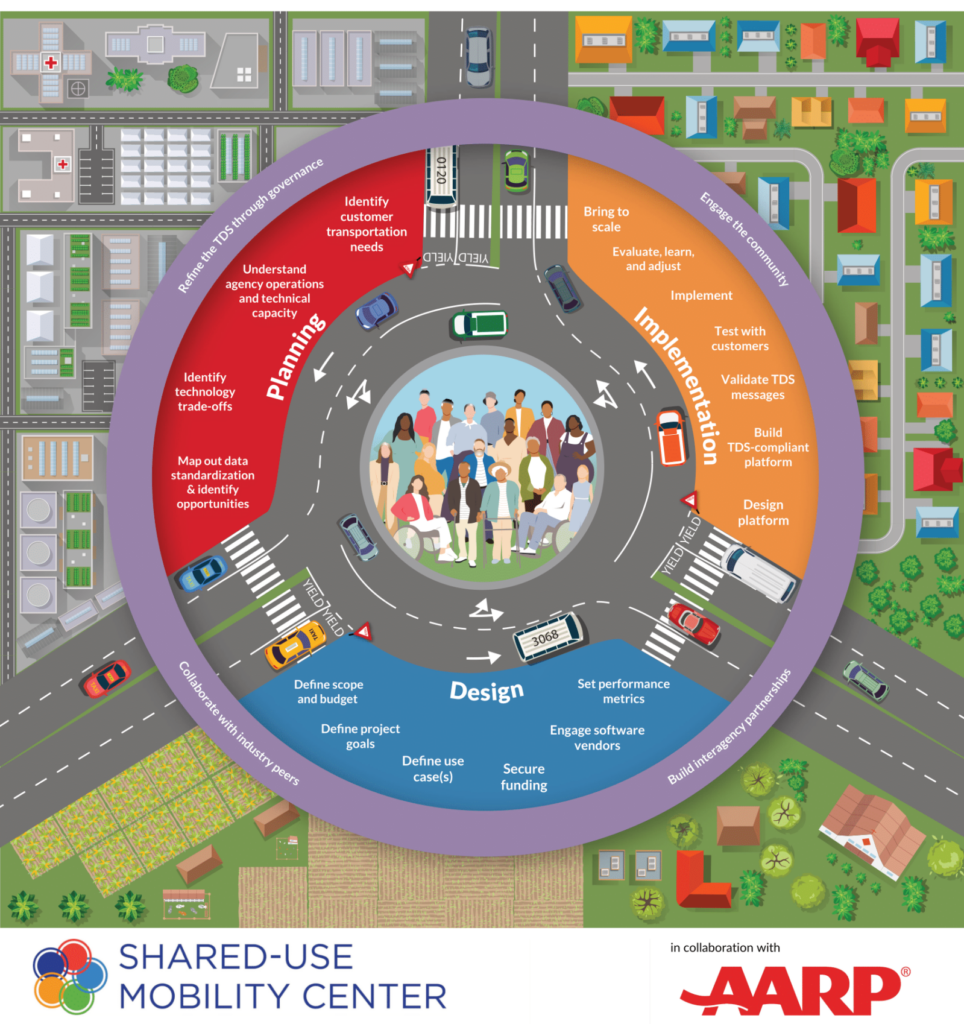Connecting Community Transportation: The Transactional Data Specification
20 minutes Author: Shared-Use Mobility Center Date Launched/Enacted: Sep 16, 2024 Date Published: September 13, 2024

Human services transportation typically takes the form of what is called demand-responsive transportation (DRT) — services that do not follow fixed routes or schedules. There are an estimated 1,000 DRT services currently operating in the U.S., many of which are in rural communities.
DRT services are critical for people who cannot drive or access regular public transportation, but they are often fragmented. There may be multiple providers in a given region, but each may operate in a silo, leading to duplicative services and denials of trip requests.
The Shared-Use Mobility Center (SUMC), with support from AARP Public Policy Institute, developed Connecting Community Transportation: Lessons Learned from Transactional Data Specification Demonstration Projects, a research report on the TDS and its role in facilitating coordinated DRT in projects around the country. This report discusses key takeaways from demonstration projects from around the U.S. and outlines additional coordination opportunities, such as with providers of non-emergency medical transportation. The report highlights how the TDS can help DRT providers interoperate their services and enhance customer access to transportation.
In addition to the research report, there is an accompanying Roadmap for TDS Implementation. This roadmap offers key considerations and steps for planning, designing, and implementing the TDS.